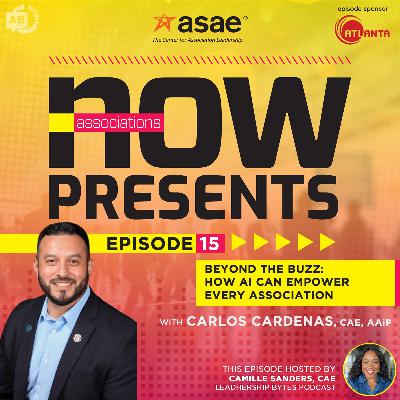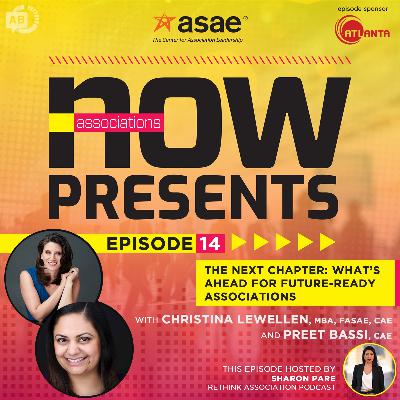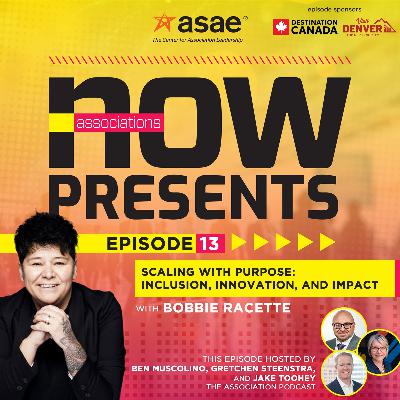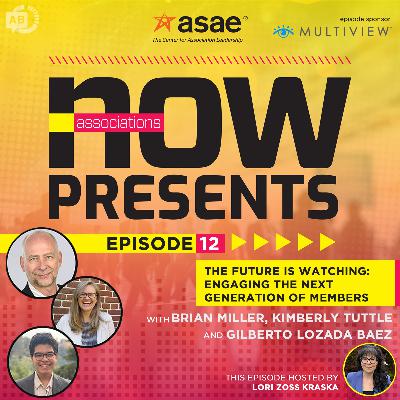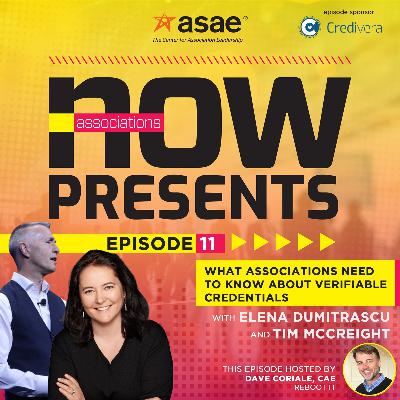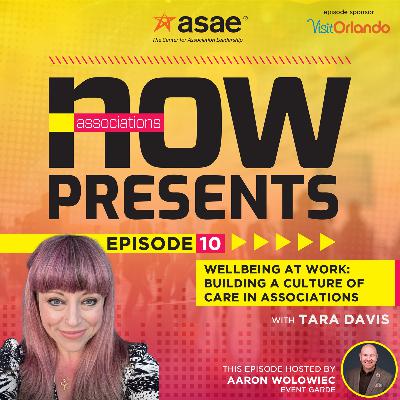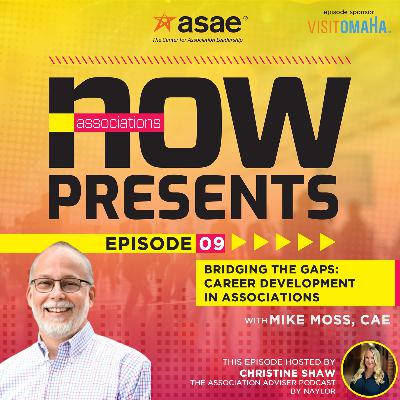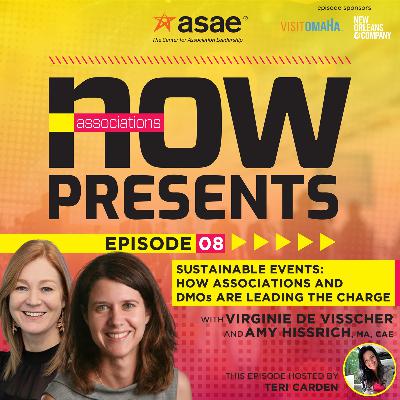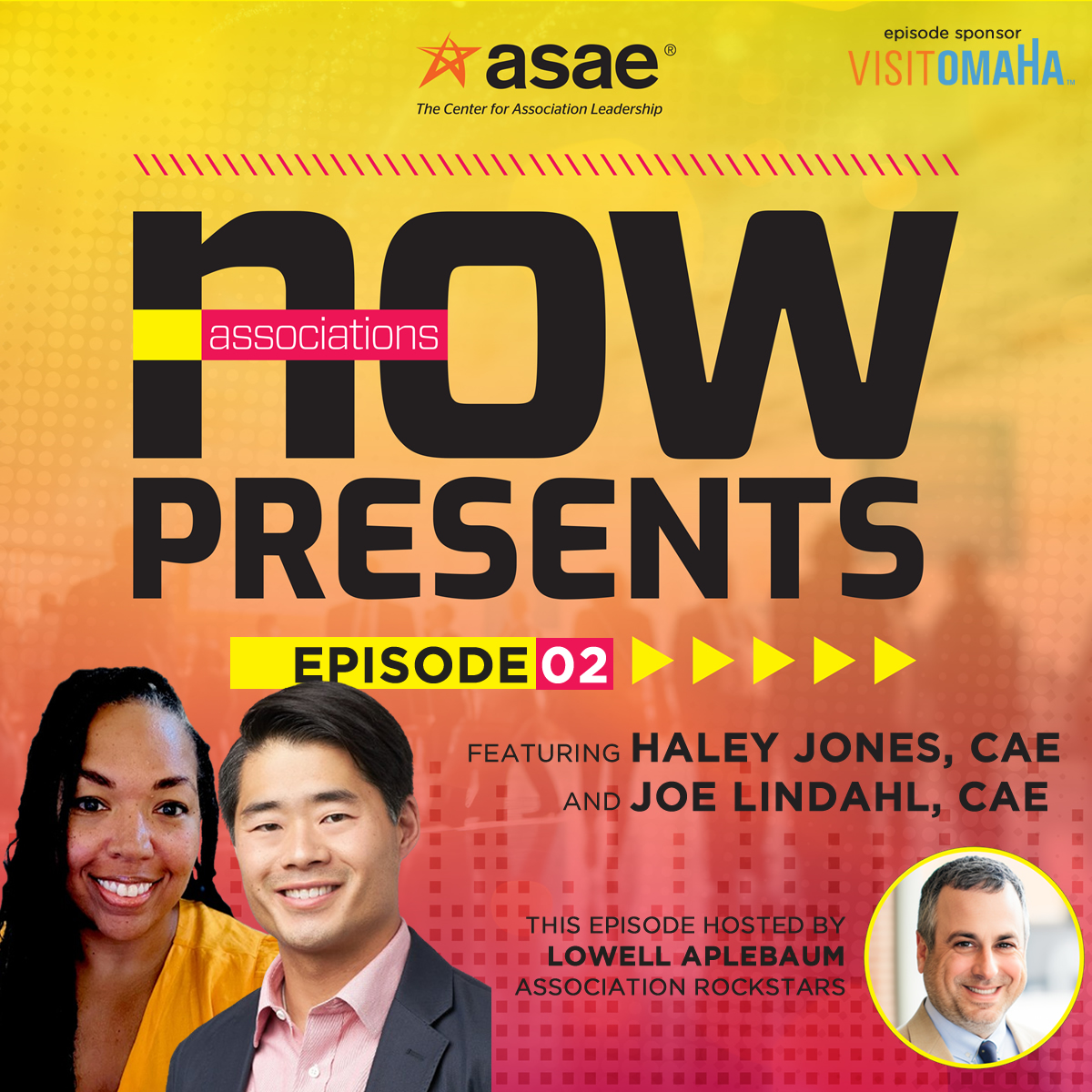Building Better Governance: Strengthening Boards and Leadership in Associations
Description
Check out the video podcast here:
https://www.youtube.com/watch?v=X_0qljegbl4
Associations NOW Presents is produced by Association Briefings.
Transcript
Dave Coriale 0:03
Hello everyone. I'm Dave Coriale, president of DelCor and host of another podcast, Reboot IT, where we talk about all things technology for the association and 501 C community. Today I am guest hosting this podcast, and I am very excited about our two guests. One of them is Mark Graham, who is the vice president of association solutions at ASAE, at the Center for Association Leadership. And the other is a leader I've been a fan of for a long time, Paul Pomerantz. He has been a CEO of several health and medical associations before this, and he is currently the managing director of the Association Governance Institute. Let's get going. Let's listen in on the conversation. I think there is plenty to gain from hearing what they have to say, and here we are having the conversation I've been looking forward to for weeks now, ever since this was scheduled. Paul, Mark, thank you for taking your time. I know you're both very busy to talk about something that's coming up and very important, the Association Governance Institute, that is one of the main topics. I'm sure we'll weave and bob through a couple others along the way. But like always, I like to start my podcast with what are we talking about? So let's talk a little bit about the Association Government Institute, what it is, etc. Mark, I think you'd be great to lead that part of the conversation. So why don't you give us a little bit of background and where we're headed here?
Mark Graham 1:23
Sure. So the Association Governance Institute, AGI, the brainchild of Michelle Mason, wanted to create a brand new home for governance, for associations. ASAE has done a pretty good job at governance, but we wanted to really focus on it and really have a terrific resource library. What we did was we always created, like a brand new organization. Why we called it the Association Governance Institute, although it will be part of your ASAE membership, and what it does, it creates a library of resources that are all focused on just governance. If you search as a website now, and you search governance, you'll get a whole host of content. But what we've done is we really drill down to a bunch of categories of governance, six categories of governance and three to five subcategories of governance, because governance is quite complicated. There's an art and science to it, and we hope to address both of that with the Association Governance Institute. So let me give you a few examples of the categories. The CEO-board relationship. We're talking about. The CEO evaluation, the compensation, the contracts we get into the culture of boards. One of the major responsibilities with board is to hire and manage the CEO. So we have a whole section on executive transitions, operations. We're talking about the soup and nuts of how boards operate. We have tons of content and sub content on all these topics to round it out. We have strategy and oversight and structure, so we've really used a lot of our advisory committees of CEOs and consultants to help us devise this whole new institute and how to organize all the content. That's the content part of it. But we're also including new tools with AGI and new educational courses. Paul and I have always joked, this is like creating a brand new organization. We started last January, and we're ready to launch next month.
Paul Pomerantz 3:06
Really exciting stuff. And just to add to this part of the thinking behind this, especially as this was first being developed by Michelle and myself and some conversations. The idea was twofold. One, ASAE has a lot of resources, but they're in different places, so the idea is bring it together and really emphasize it, shine a spotlight on it, and make it easier to find, more accessible, and then give it a place to grow. So we already have a great set of tool kits. But what's missing? What needs to be developed? What other tools can we develop? So this will provide that kind of focal point for it. The other thing is that you think about the CEO job, and CEO is successful, if his governance is successful, if the CEO and the board are working in unison, they're aligned, goals are clear, resources are being allocated according to the goals and the plan of the organization, then you have a healthy organization and it functions. Things break down when governance doesn't work. And so in our view, job one for a CEO is to make sure that governing process works; that there's communication; there's transparency; there's clarity. All those types of things. And part of our goal is to really support the CEO in carrying out that part of their position, the CEO and the staff team in other industries. corporate setting. You have the National Association of Corporate Directors in the healthcare setting. You have other governance resources. Associations do not have that kind of focus, and we're bringing that kind of focus to it.
Mark Graham 4:43
Yeah. And as Paul says, this is a starting point. In January, this thing will continue to evolve and grow with the help of our advisory committees. Paul has been instrumental, my partner in crime, if you will. He's a bright star when it comes to governance knowledge. So he's helped guide this thing from the very beginning.
Dave Coriale 5:01
No better guide out there. So I do have a question. You mentioned content. Two questions. One's about content. You mentioned that you've gone through and you've curated the content. So this sounds like it's new content, and probably a mix of some existing content. And so I want to hear a little bit more about that, as well as the assessments that you mentioned. What type of assessments would one find in the AGI?
Mark Graham 5:23
Sure. So the content is divided into a couple of different categories. You have a lot of opinion and articles thought leadership on best practice and governance and all those categories that I just mentioned. We also have how-tos, checklists and case studies. These are all tools you can give people to help them do better. In governance, I'll focus on maybe one area: executive transitions. There is a lot of guidance. We've been talking about CEO succession for decades and how to improve it. So we've gone through and curated all the best articles on CEO succession. We provide some checklists on CEO succession. For instance, very sadly, sometimes there may be an abrupt departure of a CEO. They may be terminated, they may quit. Sadly, may even pass away. We have checklists of what you should do, and each one of those instances, executive transition also involves a CEO contract. So we have whole sections on contracts from the board's perspective and the CEO's perspective, what to look for, what to negotiate, what's important, what you really focus in on? And of course, there is compensation. We have lots of tools and compensation philosophy. We even have a whole practice built around helping organizations determine the right compensation for their CEO. So that's just one of those areas that we really drill down and focus in on. The content. So we provide the opinions, the articles, the how tos, the checklists. We do this for every single one of the categories. Like in financial management, we have 20 questions a new board member should be asking about the financial situation of an organization. This is good for someone who's maybe new to governance and doesn't know what they're doing. So it's a good primer. We could talk about all the content, almost this entire podcast, who does just so much of it, governance. I went into this knowing a little bit about governance, and now I think I'm almost an expert, almost nearly half as smart as Paul, because there's so much to governance, the science of it, there's so much to it. And where people mainly get tripped up is the art of governance. And so we hope to be taken care of the whole package.
Paul Pomerantz 7:22
I couldn't agree more. And one of the great areas of content that we're really proud of, and we go through everything like Mark says: legal, roles and responsibilities, all these things. But one of the areas I'm very proud of is the board selection and development piece. And this is the area where Mark Engel and some other folks have been leaders in this area and have really created publications and tools. Well, all those are going to be curated into this website. So the whole idea of, how do you evaluate board trends and board needs? How do you recruit for a board house is an optimal leadership development process? How do you orient and train and own board members? How do you evaluate their performance? All those kinds of really rich tools that haven't been easy


